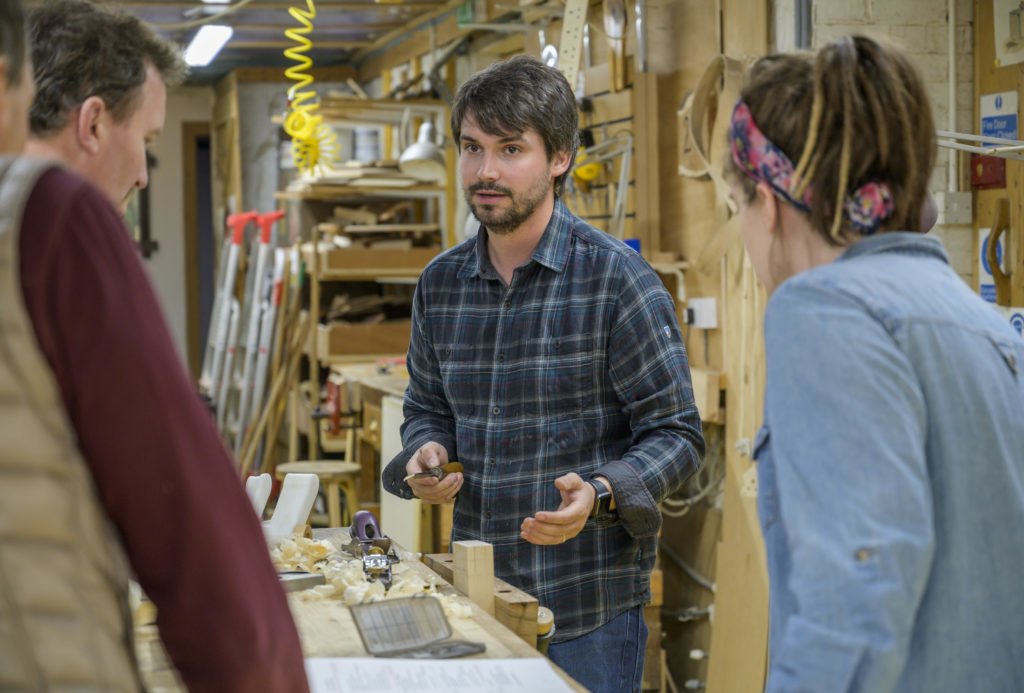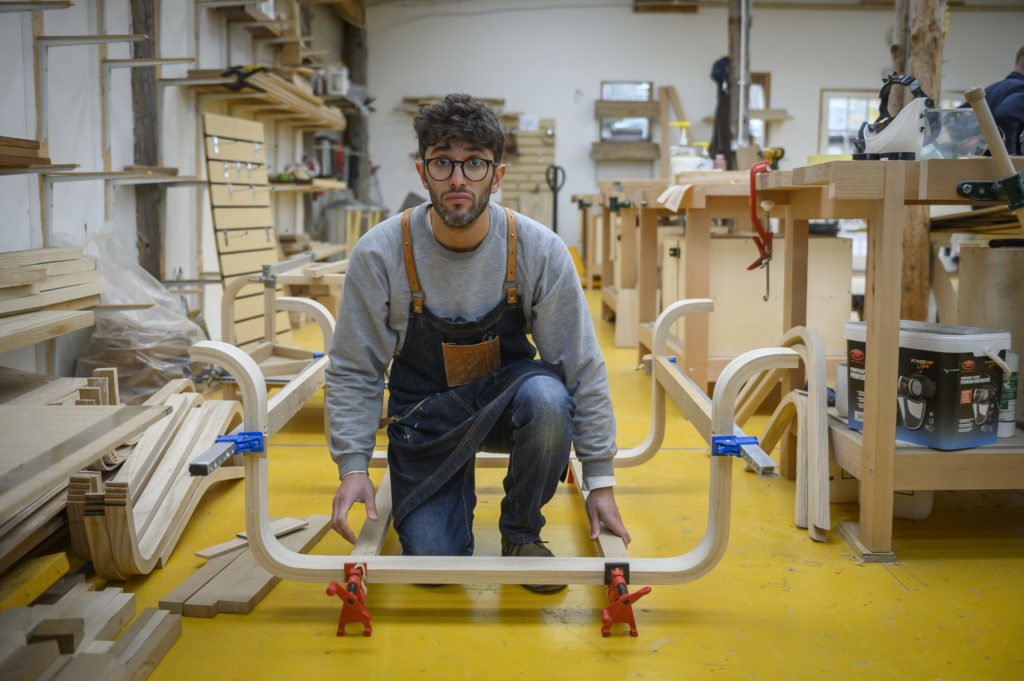
For many young people finishing school, it can seem like the only route to a successful and rewarding career is to go to university. However, while studying at university is the right choice for many, it isn’t for everyone and some young people may be looking for alternative routes into work after school.
Furniture-making and designing is a career that doesn’t require a university degree to achieve success. It does take hard work and time spent honing your woodworking skills, but these are things that you can learn outside of a university context.
The Chippendale International School of Furniture is a small and flexible school where students receive tailored tuition. The Professional course takes students to a professional standard in just nine months.
Constance, from France, a student on our Professional course chose to study at the Chippendale School instead of undertaking a university course.
She said, “I have always been passionate about art and design – I initially studied Art History at the Sorbonne University in Paris – but I wanted to create my own designs, so I opted to study on a course that had a mix of practical and theoretical elements.”
If you’re not sure if a university is the right path for you, here are some points to consider.
How quickly do you want to start your career?
Some young people are happy to postpone their career for three or four years, but some are eager to start a job in less than a year. Especially for those who didn’t enjoy their school studies, the thought of extending academic work longer may fill them with dread.
However, there are courses with a shorter length that will fully prepare graduates for a career path. Our Professional course prepares students for a woodworking career in just nine months, and graduates tend to join a furniture making workshop or start their own business almost immediately upon completing the course.
Are you mostly interested in theoretical or practical skills?
We all learn differently, and the majority of university courses focus on developing your academic skills and theoretical knowledge. If you enjoy learning and working with your hands, then university study may not be the right route.
Courses with a focus on practical skills are ideal for active learners, allowing them to produce physical products and tangibly track their learning. Our students produce a small cabinet, a carved a gilded mirror frame, a Windsor chair, a piece of furniture of their design made of solid wood, and a piece of veneered furniture of their own design during their course.
What motivates you?
There is great joy in producing a physical object, and for some, this feeling is far more satisfying than any academic achievement.
If you struggle to motivate yourself with the thought of grades and results, then maybe you need a course which measures your performance by the techniques you learn and physical items you create.
Do you work best to a highly structured routine?
If you hate getting up at the same time every day and want more varied learning opportunities, university study might not be flexible enough. With most courses catering for hundreds of students, many institutions might not provide the tailored course that helps you explore exactly what you want to be doing, while smaller courses can offer you dedicated time to explore your passions.
University can be a creative space, but you may feel stifled by the requirements of your course and the restrictions placed on your work. To pursue your passions, you might want to look outside of the traditional university route to find a path to a rewarding career.

What are the alternatives to university?
If you believe that you would thrive outside of university, there are many alternatives that will set you up with the skills you need to excel in your chosen career.
Many trades will offer apprenticeships, and some furniture making workshops do take on apprentices to develop their skills. The benefits of an apprenticeship are that you will be able to earn while you learn and grow your skills under an employer who will likely offer you a full-time job once you complete your apprenticeship.
The structure of an apprenticeship varies depending on the tradesperson you work with, so it is worth speaking to local businesses to find out the kind of apprenticeship they offer.
Some people may wish to begin a job immediately upon finishing school and this can be a great way to kickstart your career early. Some workplaces offer entry-level jobs that do not require any degrees or qualifications beyond school.
If you are someone who enjoys learning on the job, entry-level jobs will give you the chance to grow your skillset gradually within your chosen company.
Traineeships and courses can offer a fantastic alternative for those who wish to devote themselves to study but enter the world of work sooner than they would with a degree.
At the Chippendale School, our Professional course provides students with all the skills they need to excel in any furniture making career in a 9-month long intensive course. Our courses are highly practical, and you’ll be working with your hands, trying woodworking techniques from day one.
You’ll be working in small classes with expert tutors and have access to large workshop spaces from 8 am – 8 pm. Learning outcomes on the course are dictated by your own learning aims, which you have the chance to discuss with your tutors during the course.
Thinking about pursuing a furniture making career? Discover more about the Professional course, download a prospectus, or get in touch with a helpful member of our team.
